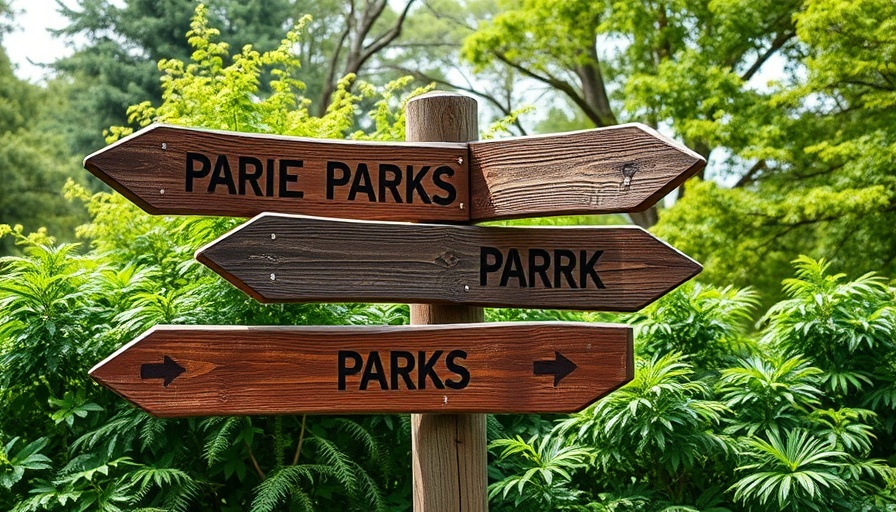
Renaming Parks to Honor Dakota Heritage
Two parks in St. Paul, Minnesota, are set to receive meaningful new names reflecting their significance to the Dakota people. Bruce Vento Nature Sanctuary will now be known as Wakáŋ Tipi, meaning "dwelling place of the sacred," while Indian Mounds Regional Park will be renamed Wic̣aḣapi, which translates to "cemetery." The St. Paul City Council made this decision based on recommendations from Minnesota's Tribal Historic Preservation Offices, with strong backing from the city's Parks and Recreation Commission.
Acknowledging Historical Context
The renaming of these parks is not merely a change of names but a profound act of remembrance. Mayor Melvin Carter emphasized this point at a press conference, stating, “These names are not just words. They’re acts of remembrance and resistance, honoring the Dakota people’s enduring presence and spiritual connection to this land.” This highlights a broader movement across America to recognize and honor Native American history and culture in public spaces.
The Cultural Landscape Weaving History and Nature
Uplifting this transformation further, the newly designated cultural landscape will be known as Imniżaska, a Dakota term meaning "white cliffs." This area, now acknowledged for its deep connections to Dakota history, carries with it centuries of culture that deserves preservation and acknowledgment. The Parks and Recreation Department aims to integrate these changes into park programming, connecting visitors with the sacred heritage of the land.
Community Support and Its Importance
Maggie Lorenz, executive director of the nonprofit Wakáŋ Tipi Awanyankapi, expressed her support for the renaming initiative: “This builds on the work that generations of Dakota people have done to hold onto our culture, preserve our history, and advocate for our sacred places.” Her statement encapsulates the importance of these names in recognizing and honoring the resilience and cultural heritage of the Dakota people.
Projected Benefits of Acknowledging Native Cultures
Renaming parks opens a door for education and community engagement. Not only does it honor the Dakota, but it also creates opportunities for discussions about Native American rights, local history, and cultural preservation. This step could inspire similar initiatives across the U.S., where many cities may reconsider the names of their public spaces to reflect more diverse histories.
Reflections on Community Identity
As communities engage with their local history, these name changes allow for healing and connection. Public spaces can serve as educational tools, fostering a sense of local identity rooted in a reverence for the past. As more cities initiate similar measures, it sends a strong message about the importance of inclusivity in the historical narrative.
Resistance through Remembrance
The act of renaming the parks serves as a vital acknowledgment of the hardships and resilience of the Dakota people. It challenges existing narratives and helps to educate the public about the significance of the land and its original stewards. This transformation is about creating visibility and understanding, engaging with history rather than sidelining it.
As we look toward the future, such movements could prompt a cultural renaissance, highlighting Indigenous voices and stories that have long been overlooked. By embracing their rightful place in local history, cities can not only revamp their identity but also promote unity and understanding among diverse populations.
The renaming of Wakáŋ Tipi and Wic̣aḣapi reflects a powerful shift in contemporary narratives, one that reverberates far beyond the borders of St. Paul. As more cities engage in similar acts, we can anticipate a growing awareness of Native histories throughout American society, allowing them to reclaim their stories amidst turbulent historical contexts.
As public spaces evolve to honor these histories, it's essential to continue advocating for holistic representation, focusing on education and acknowledgment. Community engagement initiatives can build stronger ties among residents, promoting respect for all cultural narratives and aiding in collective healing.
In an age where current events in America prompt significant discussion on societal values, this change in St. Paul represents a step towards embracing diversity and inclusivity within community identities. By honoring Indigenous histories, we create a future that respects and recognizes the past.
For those interested in learning more about how cultural movements can create change, consider engaging with local advocacy initiatives that focus on Native American issues. This engagement not only broadens individual perspectives but deeply enriches community experiences.
 Add Element
Add Element  Add Row
Add Row 



 Add Row
Add Row  Add
Add 


Write A Comment